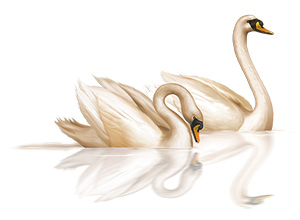When the Berlin Wall was torn down and the Soviet Union collapsed, people started to dream of a world where there would be fewer wars and thus, less pain. After the collapse of communism, the winds of globalization made this dream even bigger.
There would now be easier movement of capital and wealth would spread to everywhere. Communication would advance, people would immediately hear about far-flung events and this would restrict oppressive regimes. Even the borders would be removed, the world would be just like a one huge town and everyone would be able to travel wherever they want to.
 |
When the Arab Spring started in Tunisia and spread around, some people began saying "Here comes the end of the authoritarian regimes in the Middle East. Now the world knows the value of democracy and all the countries will soon be ruled by democracy." These words meant that one more step was taken in terms of globalization. However, what happened later showed that the flow of events was not at all as expected.
People living in the Middle East, which turned into a giant arena of conflicts, wanted to save their lives and started a migration wave towards Europe which is safer and has better economic conditions. European countries did not initially care about the situation. The refugees who tried to pass across the Mediterranean Sea were considered as a problem that only Italy faced. Turkey was already receiving those who were fleeing from Syria with open arms.
There was nothing to worry about for France, Germany, England and other Northern European countries. However, calculations changed when the migration wave started to hit the Balkans and then Central Europe through Greece.
The EU countries were suddenly on full alert. German Chancellor Merkel did not hesitate to visit Turkey which she saw as a key state to stop the migration. The promises that Turkey would be subsidized and the EU negotiation process would be revived were brought to the agenda in return for the measures that Turkey would take to stop the migration towards Europe.
 |
Today there is a similar refugee influx that unsettles Europe in another part of the world. However, there is no such country there as Turkey that receives refugees with open arms and spends billions of dollars from its own budget. Their lives are under threat at least on the same level as that of those who migrated from the Middle East and Africa.
This deadly migration movement is witnessed far away from Europe, on the other corner of the world, in the Eastern Indian Ocean. The epicenter of the migration wave is Myanmar, formerly known as 'Burma'. Those who migrate are Muslims living in the region of Rakhine [formerly Arakan] in Myanmar. Crimes against humanity have been committed against Muslims in Arakan, Myanmar since 1978. They are heavily tortured and raped; they are not allowed to pray and marry; even an identity certificate is not given to the majority. Therefore, the Rohingya Muslims have no option but to leave their country.
It is hard to find even a piece of land where these people can stand on, not to mention means like security, food and shelter. That is because Arakanese Muslims are forcibly embarked on boats and are abandoned in open seas in the countries where they seek refuge. This drama that Muslims face does not draw as much attention as dolphins or whales that wash ashore even in a lot of Muslim countries, apart from the press in Europe.
In this book, you will read news and information that have not probably had widespread media coverage. By bringing all these facts to the agenda, the aim is to draw attention to ideologies and greed that benumb people's conscience to the extent that people under the imposition of those ideas can fill children and other people on boats and leave them to die on sea without feeling any repentance. The book also desires to end the loss of lives of many more innocent people by making the world public hear that what is taking place in